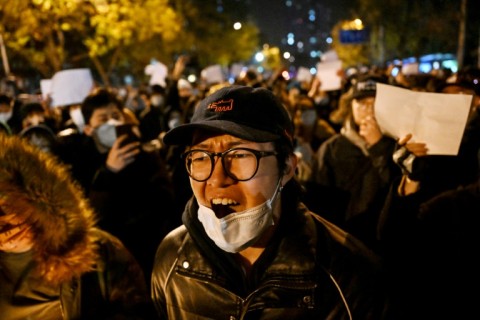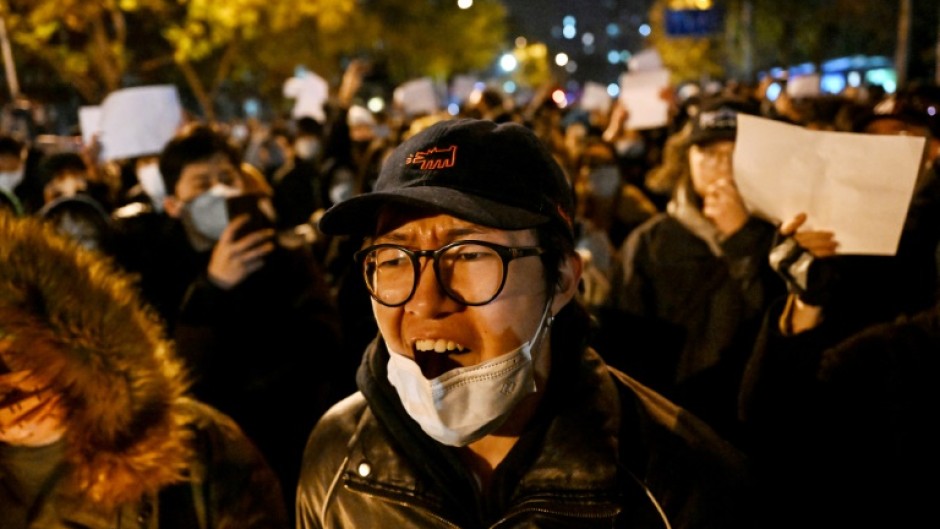
BEIJING - Stocks and oil prices sank on concerns about protests across China calling for political freedoms and an end to the government's hardline zero-Covid policy, fuelling uncertainty in the world's number-two economy.
Hundreds of people took to the streets at the weekend in the country's biggest demonstrations since pro-democracy rallies in 1989 were crushed.
A deadly fire in the Xinjiang region on Thursday served as the catalyst for public anger, with many blaming virus lockdowns for hampering the rescue effort.
People have taken to the streets in Beijing, Shanghai, Guangzhou and Chengdu calling for an end to lockdowns after an easing of some measures had fuelled hopes of a lighter pandemic approach.
China-linked stocks took the brunt of selling, with Hong Kong's Hang Seng Index down two percent and Shanghai off one percent. The yuan was off more than one percent.
There were also losses in Tokyo, Sydney, Seoul, Singapore, Taipei, Jakarta, Bangkok and Wellington.
"Sentiment has turned sour as unrest across China grows," said SPI Asset Management's Stephen Innes. "Protest of this extent is rare in the country and raises many uncertainties.
"The best scenario is further easing and reopening, but the speed at how things deteriorated over the weekend suggests the government needs to act fast. The risk of the situation escalating from here and short-term volatility remains high."
Ken Cheung of Mizuho Bank added: "It appears that the zero-Covid policy is reaching its tipping point. More easing or refinement on the Covid measures will be needed to curb discontent."
The prospect of a hit to demand in the world's biggest crude importer hammered oil prices, with both main contracts down more than two percent.
The selling has taken a bit out of recent gains across markets sparked by hopes of a slowdown in the Federal Reserve's interest rate hikes as inflation finally shows signs of softening.
However, some observers said the protests could provide long-term benefits as they could force President Xi Jinping to shift away from his strict, economically damaging measures sooner.

